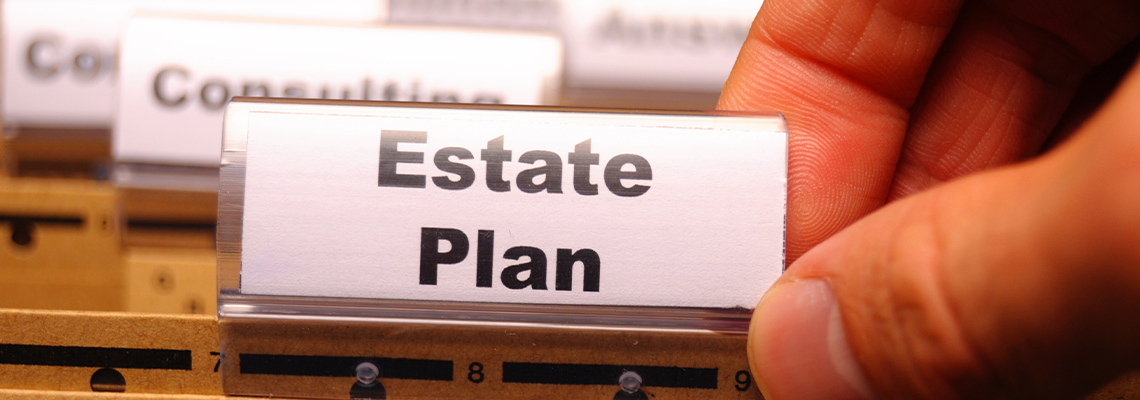
Estate Planning and Divorce
Creating a well-detailed estate plan is essential to leave assets for your surviving loved ones and provide instructions concerning how your final affairs should be handled when you’re gone. Unfortunately, a marital dissolution can affect your existing estate plans and other aspects of your life. For this reason, you may need to review and update your estate plan—once your divorce is finalized—to ensure that the provisions are consistent with your present wishes and status.
At the Law Office of Robert L. Firth, we’re dedicated to advising clients in complex estate planning matters involving divorce. Our seasoned California estate planning attorney can enlighten you about how divorce affects your estate plan and help update your various estate planning documents accordingly. We’re proud to serve clients across Cathedral City, Desert Hot Springs, Palm Springs, Rancho Mirage, Palm Desert, and throughout the Coachella Valley, California.
How Divorce Affects Your Estate Plan
Many individuals often seek divorce for different reasons, including marital misconduct, lack of communication, domestic violence, substance abuse, or irreconcilable differences. A marital dissolution may cause your wishes, needs, and priorities to change. Likewise, your estate planning goals may change after your marriage has been dissolved.
Therefore, it is advisable that you evaluate and update all of your estate planning documents after the marital dissolution to make sure that the provisions are consistent with your current wishes. Generally, you may need to change the named parties in your will, living trust, powers of attorney, advanced directives, and other crucial documents.
Updating Your Estate Plan After a Divorce
Here are some of the things you need to do to update your estate planning documents after your divorce:
Review and Update Your Will
Following your divorce, you need to review and update your last will and testament. This may include replacing your ex-partner as a personal representative or named beneficiary in your will with your new spouse. You can update your will by revoking the original will and creating a new one. Alternatively, you can use a codicil to modify the will without drafting a new one. With this, you can make necessary changes and mitigate potential disputes or confusion during probate and estate administration.
Powers of Attorney
If you named your ex-spouse as your agent in the POA document, you may want to review and update this. Generally, it is important that you choose a dependable and trustworthy person as your attorney-in-fact. This is because they will have legal duty and authority to make property, financial, legal, and tax-related decisions for you when you’re unavailable or unable to do that by yourself.
Advanced Directives
Similarly, you may need to change the provisions of your advanced care directives if your ex-spouse was previously named as the healthcare proxy. Thus, you can choose a reliable person to make medical and treatment decisions on your behalf when you’re unable to do so.
Retirement Accounts & Life Insurance
It is important that you update the designated beneficiaries in your life insurance policies and retirement accounts. Many individuals often name their spouse as a beneficiary to their IRAs, 401(k), and life insurance policy, and this can be easily ignored after a divorce. Now that circumstances have changed, you need to update the named beneficiary to reflect your present wishes and mitigate legal issues when you’re no more.
Guardianship for Minor Children
Finally, if the divorce was due to your ex-spouse’s misconduct, such as adultery, domestic abuse, or alcoholism, they may be unfit to care for your children should you pass away. Thus, it may be beneficial to change them as the legal guardian and choose a more responsible guardian for your minor children. In addition, state your dissatisfaction and concerns in writing. The judge will consider your concern when deciding guardianship or child custody.
What Happens to a Trust in a Divorce?
What happens to a living trust will depend on the type of trust. Essentially, revocable living trusts created by both spouses will be automatically revoked in a divorce. Trust property will be classified as separate or community (marital) property. Also, the court will divide the community property equally (50/50) between the spouses in accordance with applicable state statutes.
In contrast, assets in an irrevocable trust are not considered community property and won’t be divided in a divorce. Rather, the trust property will be transferred to the named beneficiary upon the death or sudden incapacitation of the trustor.
Also, the judge will consider the trust assets to be inherited by one of the spouses during property distribution in the divorce. In a situation where the trustor created the trust without their partner’s approval, they may need to reimburse their ex-spouse during the divorce.
We Can Handle the Full Picture
Reviewing and updating your will, trust, and estate plans after finalizing your divorce is crucial to avoid possible issues. At the Law Office of Robert L. Firth, we have the diligence and expertise to advise and guide clients in estate planning-related matters. Our trusted team can educate you about what to do after your divorce and help you make the necessary changes to your estate planning documents.
Contact us at the Law Office of Robert L. Firth today to schedule a simple consultation with a dedicated estate planning lawyer. Our skilled attorney can offer you the personalized guidance and advocacy you need to make intelligent decisions. We proudly serve clients across Cathedral City, Desert Hot Springs, Palm Springs, Rancho Mirage, Palm Desert, and throughout the Coachella Valley, California.